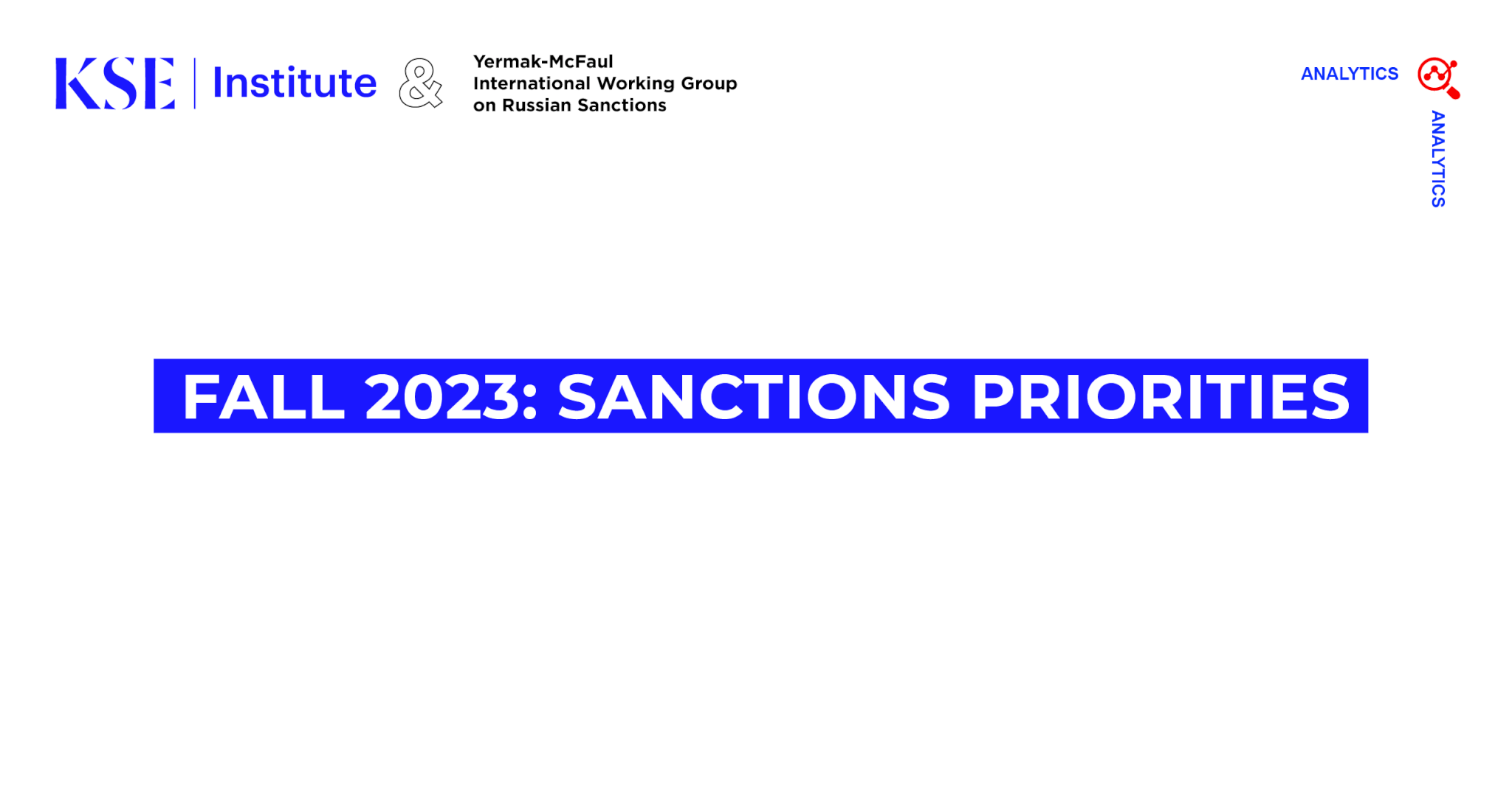- Kyiv School of Economics
- About the School
- News
- Fall 2023: Sanctions Priorities
Fall 2023: Sanctions Priorities
14 September 2023

The Russian economy is undeniably under significant sanctions pressure. Nevertheless, recent months have revealed the aggressor’s resourcefulness and success in identifying new loopholes to circumvent these sanctions.
This is why the experts from the International Working Group on Russian Sanctions and Kyiv School of Economics are urging the countries within the sanctions coalition to intensify their efforts, both in implementing new sanctions and in enhancing the effectiveness of those already in place, and presented top-priorities in the sanction policy for fall 2023. They include five main streams, based on the recent papers, presented by the experts of the Group: battlefield components, energy, implementation, national and individual sanctions, as well as confiscation and legislation.
Battlefield Components. In this stream, the focus is on restricting Russia’s access to western technologies used in weapons manufacturing. Key recommendations include unifying sanctions lists across coalition countries, improving dual-use goods classification, development and adoption of mandatory recommendations on compliance with sanctions restrictions for manufacturing companies, and increasing responsibility and accountability. More details in Yermak-McFaul Sanctions Group Paper #13 Strengthening Sanctions on Foreign Components in Russian Military Drones and Yermak-McFaul Sanctions Group Paper #12 Strengthening Sanctions to Stop Western Technology from Helping Russia’s Military Industrial Complex
Energy. This stream emphasizes the critical role of energy sanctions in curbing Russia’s ability to finance war. The priorities include better price cap enforcement, measures to combat Russia’s shadow fleet, and steps to sanction Russia’s exports of liquefied natural gas (LNG). More details in Yermak-McFaul Sanctions Group Paper #14: Using Energy Sanctions to Shorten the War
Sanction expansion. In this direction, in particular, it is proposed to expand the imposition of sanctions on individuals, holding facilitators of sanctions evasion accountable, expanding trade sanctions categories, imposing financial sector sanctions, and pushing for the exit of foreign banks from the Russian market. More details are provided in Yermak-McFaul Sanctions Group Paper #11: Action Plan 2.0 on Strengthening Sanctions Against the Russian Federation
National and Individual Sanctions. The governments of the sanctions coalition are advised to be proactive in self-imposed sanctions that may prove difficult for all coalition members to adopt. It is also recommended to strengthen sanctions against propagandists, and to extend sanctions to close family members or proxy owners and defining clear criteria for designations.
Confiscation and Strengthening of Sanctions Legislation. The recommendations underline the critical importance to protect decision-making on sanctions from pro-Russia influences. Recommendations include adopting a qualified majority vote for sanctions decisions, enacting the European Commission’s draft directive on criminal offences and penalties for violating EU sanctions, and initiating asset confiscation, both from the Russian central bank and private assets of Russian tycoons. More details are provided in Yermak-McFaul Sanctions Group Paper #15: Why and How the West Should Seize Russia’s Sovereign Assets to Help Rebuild Ukraine
The full text of the Sanctions Priorities Autumn 2023 is available via link: https://bit.ly/4668awf
